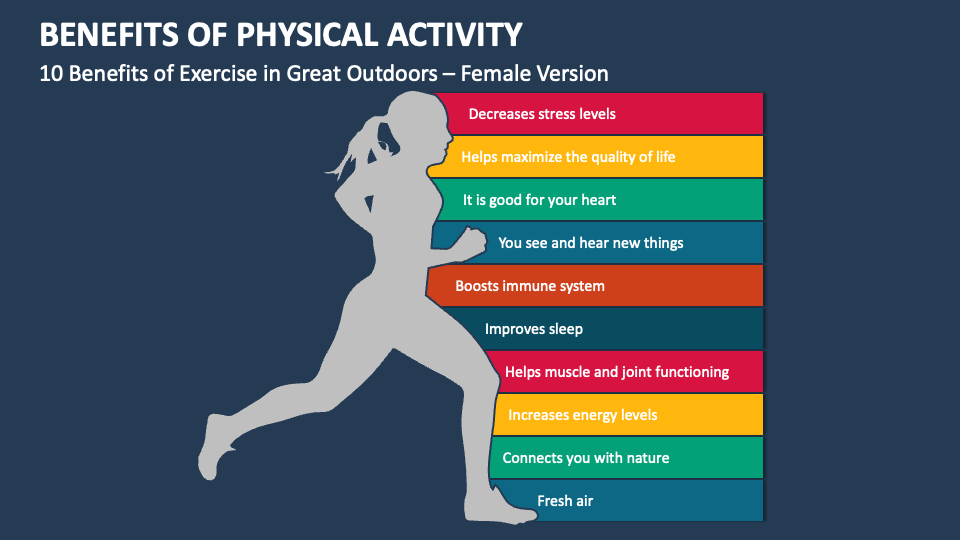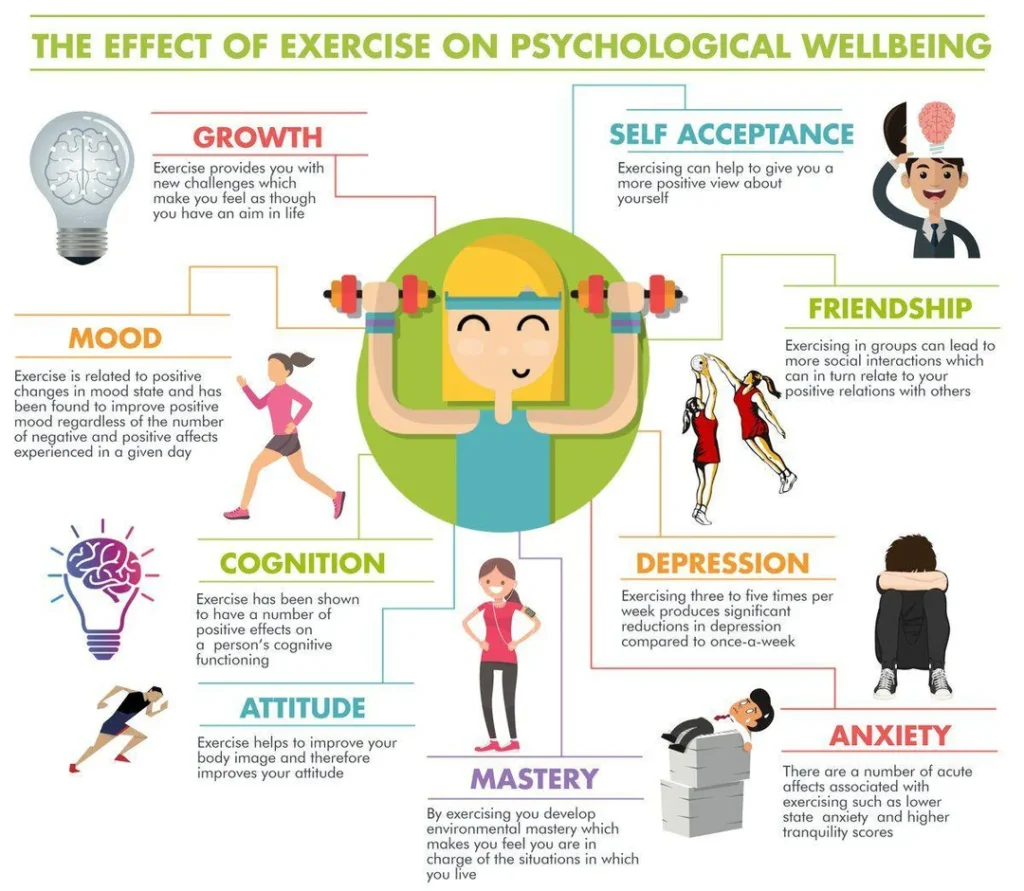Exercise is the best way to improve physical and mental health, prevent disease, boost energy, and enhance overall well-being for all fitness levels and ages.
Let’s explore why exercise is the best and why it should be a priority for everyone.
Physical Health Benefits:

Regular exercise is one of the most powerful ways to maintain a healthy body. Whether it’s walking, running, swimming, or strength training, physical activity helps your body in numerous ways:
- Boosts cardiovascular health: Engaging in aerobic activities such as walking or jogging strengthens your heart, improving circulation and lowering blood pressure. This reduces the risk of heart disease, stroke, and other cardiovascular conditions.
- Strengthens muscles and bones: Weight-bearing exercises like lifting weights, squats, and push-ups build muscle mass and bone density. As we age, muscle strength naturally decreases, so exercising helps to counteract that effect and prevent osteoporosis.
- Enhances flexibility and balance: Stretching exercises like yoga and Pilates improve flexibility, balance, and posture. These practices also reduce the risk of falls, particularly as we age.
- Helps in weight management: Exercise burns calories, helping you maintain or achieve a healthy weight. Combining exercise with a balanced diet is one of the most effective ways to shed extra pounds and prevent obesity.
Mental Health and Emotional Well-being:
Not only is exercise great for your body, but it’s also incredibly beneficial for your mind:
- Reduces stress and anxiety: Exercise triggers the release of endorphins, known as “feel-good” hormones, which act as natural stress relievers. Even a short 30-minute walk can boost your mood and lower feelings of stress and anxiety.
- Improves mental clarity: Engaging in regular physical activity enhances brain function by increasing blood flow to the brain. This helps with better concentration, sharper memory, and improved cognitive function over time.
- Boosts self-esteem: As you achieve your fitness goals, whether it’s running faster, lifting heavier, or simply feeling stronger, your self-esteem naturally increases. This confidence often spills over into other areas of life, helping you tackle challenges with a positive mindset.
- Combats depression: Physical activity is an effective way to combat symptoms of depression. Studies have shown that regular exercise can be as effective as medication in reducing symptoms of mild to moderate depression.
Longevity and Disease Prevention:
Living a long, healthy life is something many strive for, and regular exercise plays a vital role in this pursuit. Research shows that physically active people tend to live longer and are less likely to suffer from chronic diseases:
- Prevents chronic diseases: Exercise can help prevent or manage conditions like type 2 diabetes, hypertension, arthritis, and certain types of cancer. By maintaining a healthy weight and keeping your body active, you are taking proactive steps to ward off these diseases.
- Enhances immune function: Regular physical activity has been shown to improve immune function, making it easier for the body to fight off illnesses. Moderate exercise can increase the circulation of immune cells, boosting your defense against infections.
- Promotes longevity: Numerous studies have linked regular exercise with a longer lifespan. Even moderate-intensity activities, like brisk walking or cycling, have been shown to reduce the risk of early death and extend life expectancy.
Also Read: What Is Fitness – A Comprehensive Guide!
Exercise and Energy Levels:
If you’re feeling sluggish or low on energy, exercise might be the last thing on your mind, but it can actually boost your energy levels significantly. Here’s how:
- Increases stamina: Engaging in regular exercise improves your body’s ability to deliver oxygen and nutrients to your muscles. This means that over time, activities that used to make you feel tired—like climbing stairs or carrying groceries—will become easier.
- Improves sleep quality: People who exercise regularly often experience better sleep. Exercise helps regulate sleep patterns, making it easier to fall asleep and enjoy a restful night’s sleep. Adequate rest then translates into higher energy levels during the day.
- Boosts metabolism: Physical activity increases your metabolic rate, meaning your body burns more calories even when you’re resting. This increased efficiency helps keep your energy levels higher throughout the day.
Social and Psychological Benefits:

Exercise isn’t just a solitary activity; it can be a great way to socialize and strengthen relationships:
- Builds a sense of community: Joining a fitness class, sports team, or simply exercising with friends or family creates a sense of camaraderie and support. Whether you’re participating in a group run or a yoga class, the social aspect can make exercise more enjoyable.
- Fosters discipline and commitment: Committing to a regular exercise routine teaches discipline and time management. The perseverance and consistency needed to achieve fitness goals can translate into other areas of life, improving productivity and success in both personal and professional endeavors.
- Enhances emotional resilience: Regular physical activity fosters a more positive attitude and emotional resilience. The challenges you face during a workout—like pushing through fatigue or finishing a tough set—can help build mental toughness and the ability to handle stress more effectively.
Customizable for All Ages and Fitness Levels:
One of the best things about exercise is its adaptability. It doesn’t matter if you’re young or old, fit or just starting out—exercise can be tailored to suit everyone’s needs:
- For beginners: Starting small is key. Walking, stretching, and simple bodyweight exercises like squats and lunges can be done at home with no equipment required. As your fitness improves, you can gradually increase intensity and variety.
- For seniors: Low-impact exercises such as swimming, cycling, or yoga are excellent for maintaining mobility and strength without putting too much strain on the joints. Regular exercise can slow the aging process and improve the quality of life.
- For athletes: If you’re already active, you can challenge yourself further with more advanced routines, focusing on improving strength, speed, and endurance.
FAQ’s
How does exercise improve mental health?
Exercise releases endorphins, reduces stress and anxiety, boosts self-esteem, and can help combat depression.
What are the physical benefits of regular exercise?
Regular exercise improves cardiovascular health, strengthens muscles and bones, enhances flexibility, and helps with weight management.
Can exercise help prevent chronic diseases?
Yes, regular exercise helps prevent or manage chronic conditions like diabetes, hypertension, arthritis, and certain cancers.
Does exercise boost energy levels?
Yes, exercise increases stamina, improves sleep quality, and boosts metabolism, leading to higher energy levels throughout the day.
Is exercise suitable for all ages?
Absolutely! Exercise can be tailored to fit all ages and fitness levels, from beginners to seniors and athletes.
Conclusion
In conclusion, regular exercise is essential for maintaining physical and mental health, preventing chronic diseases, and improving overall well-being. It enhances cardiovascular health, strengthens muscles and bones, and boosts mental clarity while reducing stress and anxiety. Suitable for all ages and fitness levels, exercise promotes longevity, increases energy, and fosters a positive mindset, making it a lifelong key to health and happiness.